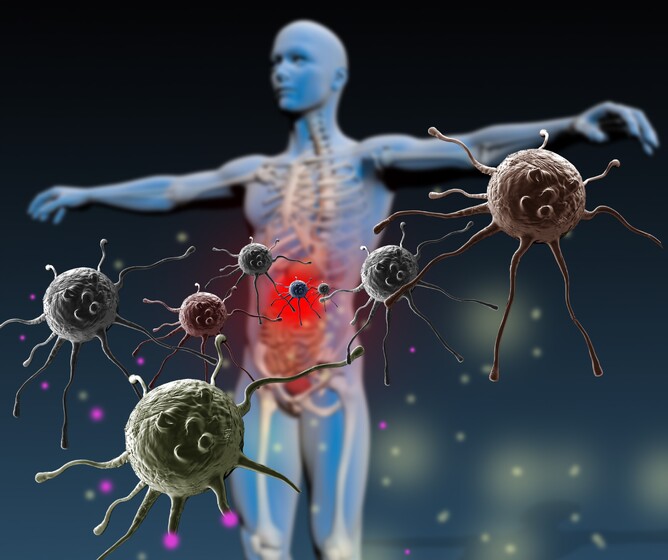Comprehensive Care for Mitochondrial Disease: The Role of Therapy Assistants
Mitochondrial disease, a condition that impairs cellular energy production, can significantly impact patients’ energy levels, mobility, and overall quality of life. This complex disorder can make daily activities challenging, affecting individuals’ ability to participate fully in their lives. A comprehensive care approach is essential to help patients manage symptoms and optimize their daily functioning. This blog explores how Therapy Assistants play a crucial role in supporting individuals with mitochondrial disease, working within a multi-disciplinary team to enhance patients’ well-being.
Understanding Mitochondrial Disease and Its Challenges
Mitochondrial disease is a genetic disorder that disrupts energy production in cells, affecting the body’s organs and tissues. Since mitochondria are the “powerhouses” of cells, individuals with mitochondrial disease often face chronic fatigue, muscle weakness, respiratory issues, and exercise intolerance. These symptoms can make even simple daily tasks daunting, requiring supportive care strategies to manage symptoms and preserve quality of life.
The Role of Therapy Assistants in a Multi-Disciplinary Care Team
Supporting Energy Management Strategies - Therapy Assistants work closely with patients to develop effective strategies for energy conservation, an essential aspect of managing fatigue and preventing overexertion. They help patients plan rest periods, pace activities, and use adaptive equipment to reduce physical strain. Therapy Assistants provide guidance on structuring the day around energy-efficient routines, enabling patients to participate in meaningful activities without overwhelming their energy reserves.
Assisting with Physical Therapy and Mobility Goals - Under the guidance of Physiotherapists, Therapy Assistants support patients in maintaining and improving muscle strength and mobility. They facilitate exercises tailored to each patient’s physical limitations and energy levels, ensuring safe, achievable goals. Therapy Assistants might assist with gentle stretching, low-resistance strength training, and balance exercises, adapting techniques as needed to accommodate patients’ fluctuating energy levels and prevent fatigue.
Encouraging Functional Independence - Therapy Assistants empower patients to manage activities of daily living (ADLs) with modified techniques, fostering greater independence. They provide guidance in essential tasks like dressing, cooking, and light cleaning, allowing patients to engage in self-care and household activities with appropriate adjustments. By promoting independence in daily routines, Therapy Assistants help patients maintain a sense of control and accomplishment in their lives.
Innovative Approaches in Therapy Assistance for Mitochondrial Disease
Adaptive Exercise Physiology Techniques - Therapy Assistants use adaptive exercise techniques designed to conserve energy while supporting physical health. Exercises may include stretching, gentle resistance, and balance work. Therapy Assistants closely monitor patients’ exertion levels, adjusting routines to fit individual needs and prevent overexertion, which is crucial for patients with limited energy reserves.
Integrating Assistive Technologies - Therapy Assistants introduce assistive devices like mobility aids, adaptive seating, and supportive braces to enhance patients’ comfort and mobility. These tools help prevent fatigue, support physical stability, and enable patients to engage more fully in daily activities. By working with patients to identify the most effective assistive devices, Therapy Assistants play a key role in supporting functionality and quality of life.
Case Management and Emotional Support Provided by Therapy Assistants
Building a Positive Therapeutic Relationship - A trusting relationship between Therapy Assistants and patients fosters motivation and emotional resilience, both essential for managing a chronic condition like mitochondrial disease. Therapy Assistants offer encouragement and emotional support, helping patients cope with the challenges of their condition and promoting a positive outlook in their daily lives.
Collaborating with Family and Caregivers - Therapy Assistants work closely with family members to help them understand and support the patient’s needs without overburdening them. They offer guidance on assisting with daily activities, teaching techniques that allow patients to remain as independent as possible. Therapy Assistants may also provide resources and training sessions to help family members create a supportive home environment.
The Benefits of Consistent Therapy Assistance in Mitochondrial Disease Management
Research and clinical examples show that Therapy Assistants significantly improve patient outcomes by supporting daily function, managing symptoms, and encouraging independence. Consistent support from Therapy Assistants enables patients to achieve greater stability in their symptoms and maintain a higher quality of life despite their condition.
Challenges and Solutions in Therapy Assistance for Mitochondrial Disease
Managing Fluctuating Symptoms - Therapy Assistants are skilled at adapting routines to accommodate patients’ varying energy levels and symptom severity. By adjusting tasks and activities based on the patient’s current abilities, they ensure safe, effective care.
Addressing Accessibility Issues - Therapy Assistants work to improve accessibility for patients, whether through home modifications or by recommending mobility aids. These adjustments are crucial for enabling patients to perform daily activities comfortably and safely.
Conclusion
Therapy Assistants are essential in providing support and enhancing quality of life for patients with mitochondrial disease. Working alongside other allied health professionals, they create a foundation of comprehensive, individualized care that helps patients manage symptoms and achieve greater independence.
Holistic Strength’s Therapy Assistants provide tailored support for managing mitochondrial disease. Reach out to us today to discuss how we can assist you or a loved one.
